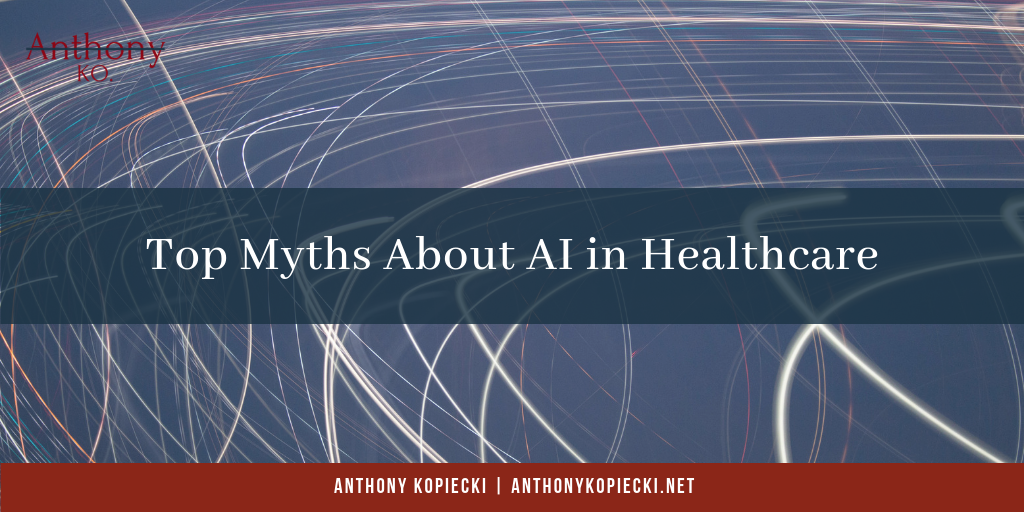We all know that Artificial Intelligence, also known as AI, is starting to make its way into many aspects of the healthcare industry. Recently, Dr. Anthony Chang, the chief intelligence and innovation officer at Children’s Hospital and Orange County, discussed common misconceptions about AI in healthcare. Here’s a look at some of his talking points at the HIMAA Machine Learning and & AI event:
#1: AI will replace clinicians (AI will make clinicians less human)
Many worry that artificial intelligence will replace the need for actual clinicians in the field. It’s a common fear that AI will be exclusively responsible for reading images and test results (i.e., x rays, ct scans, cardiac-echo results). Even though this is a common misconception, Chang argues that we will still need clinicians like radiologists and cardiologists. Doctors will have to teach AI (the machines) the skills that allow them to interpret results. There are many areas where AI can aid clinicians and lessen their workload. This includes integrating information that would usually have to be researched and reporting results quicker to patients. In other words, AI will eliminate the need for doctors to be the go-between for reporting results and other patient information.
#2: Every aspect of healthcare should include AI
AI will not be in every aspect of healthcare. Chang revealed that “Not every part of the hospital needs deep learning,” but there are a few that will “benefit from easy, simple algorithms.” There are still plenty of areas that will require actual human interactions, like face-to-face discussions about treatment options and administering tests. In the future, we will see jobs in fields like radiology become more interesting thanks to AI.
#3: Deep learning will be the main AI tool
Deep learning is only the beginning of AI in healthcare. There will be a more cognitive aspect to technology, Chang argued. He said that, “machines are fast but kind of stupid; humans are slow but kind of smart.” In the future deep learning will be surpassed by technology that’s more cognitive in nature.
#4: You don’t have to program to contribute
To make change and contribute in the evolution of AI you don’t necessarily have to be a programmer, according to Chang. Providers can help build AI programs by evaluating the foundational layer, and the key service drivers on which the AIs are designed to operate. This way, providers and other healthcare professionals can help form a “progression from data to information to knowledge to intelligence.”
#5: We need more data to make deep learning possible
While deep learning programs are naturally data hungry, there aren’t thousands of MRIs of a single rare disease. Not every medical case is going to have enough data to interpret without a clinicians input, and the likelihood of false negatives based on lack of data is a real risk at this point. However, data scientists are beginning to learn how to generalize from small amounts or little data. This makes it more possible for deep learning to operate with regards to rare conditions.
#6: AI isn’t applicable in primary care
This statement is false. There are plenty of areas where AI can help those in primary care. This includes chart review, documentation, and health coaching for the patient. Artificial intelligence can help to bridge slow communication between provider and patient.
#7: AI will be here in the future
Overall, Chang believes that AI is here now and the technology is rapidly improving. This means that the AI in healthcare will need guidance now to shape improvements down the road. Data scientists and doctors will have to work together to ensure that this technology is implemented and developed properly.
